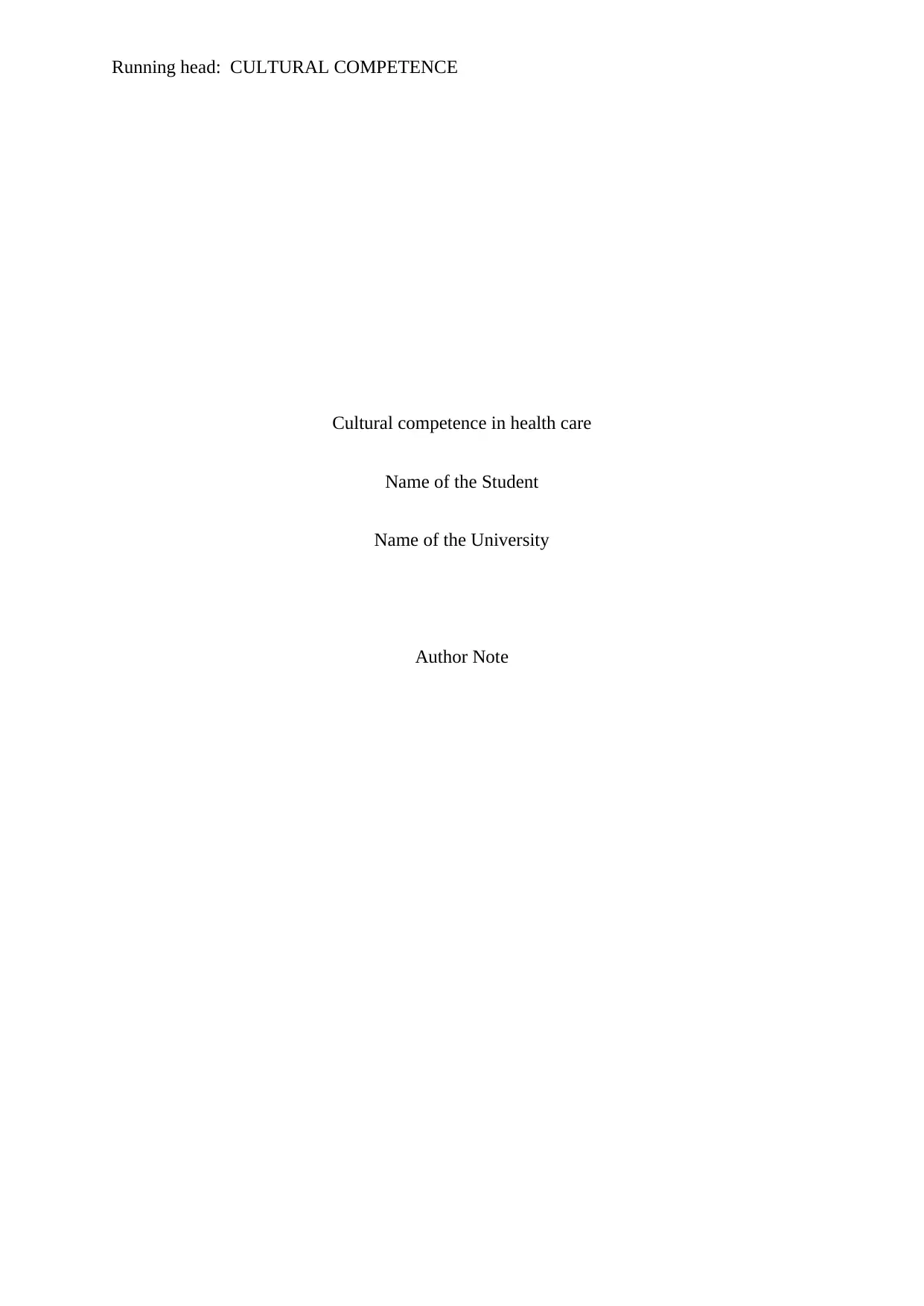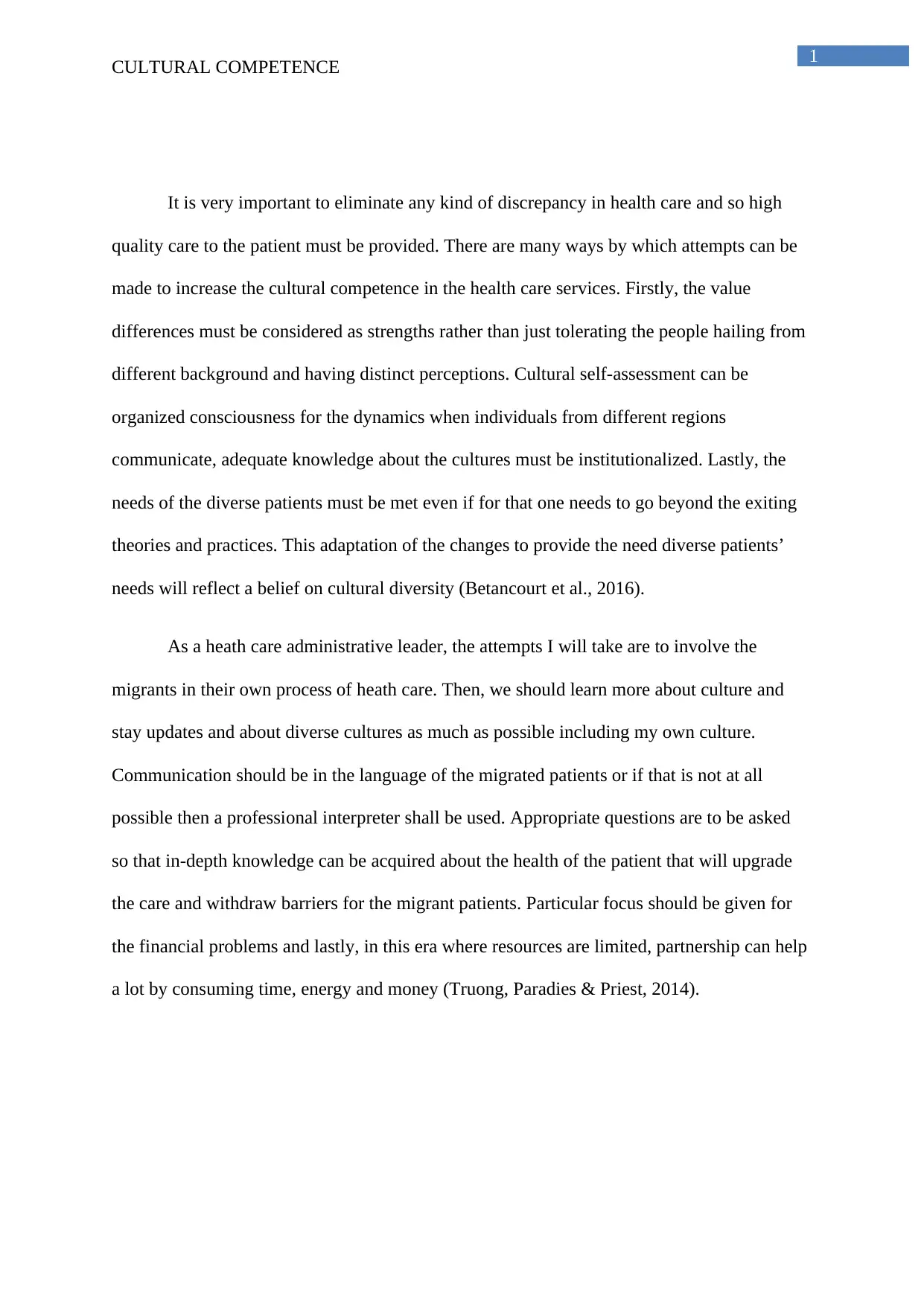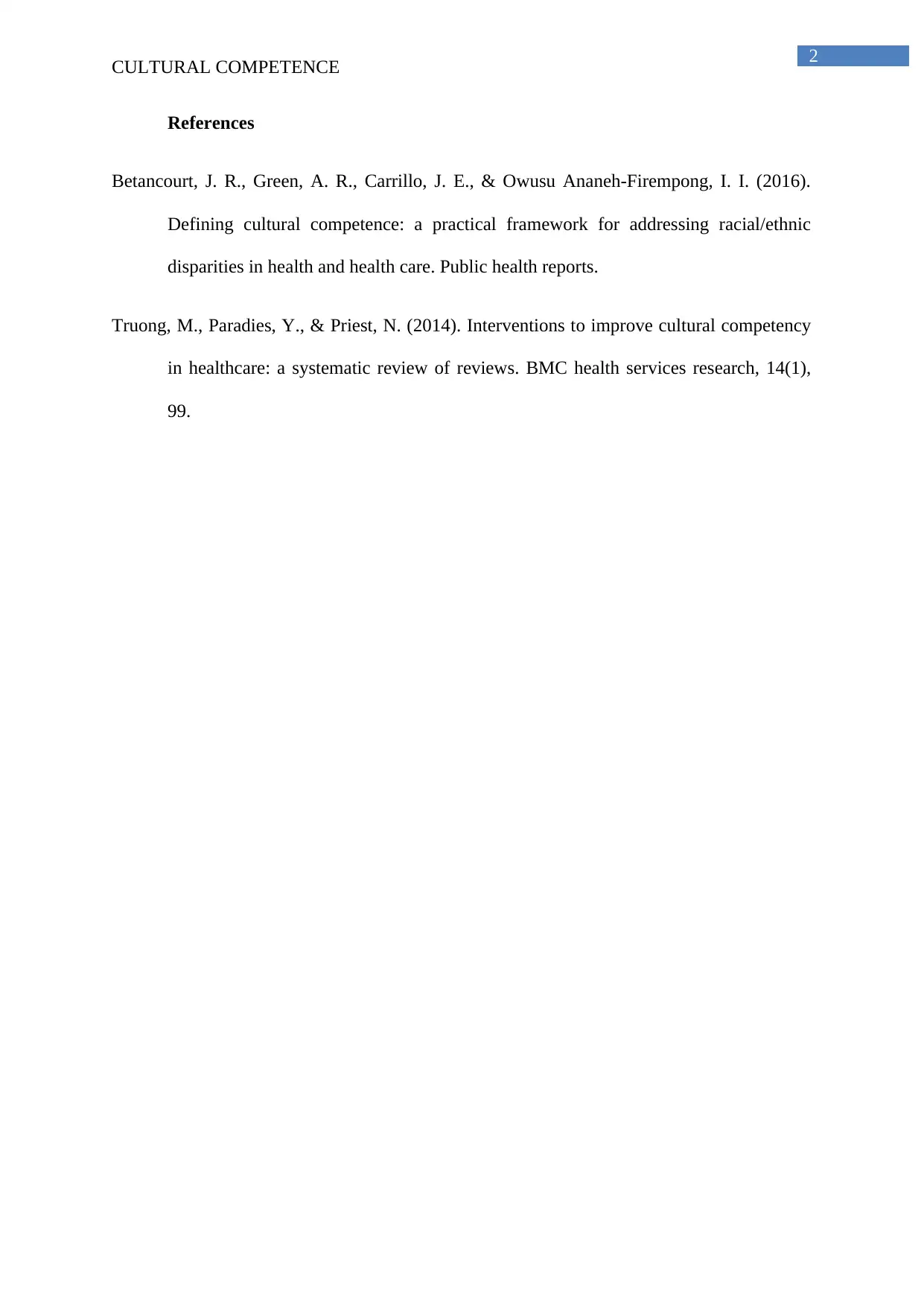University Healthcare: Cultural Competence Report and Analysis
VerifiedAdded on 2020/02/24
|3
|412
|48
Report
AI Summary
This report focuses on cultural competence within healthcare, emphasizing the importance of addressing disparities and providing high-quality care to diverse patient populations. The author discusses the need to view cultural differences as strengths, promoting cultural self-assessment, and adapting practices to meet varied patient needs. The report outlines practical steps for healthcare leaders, including involving migrants in their care, staying updated on diverse cultures, using professional interpreters, asking appropriate questions to understand patient health, addressing financial barriers, and forming partnerships. The provided references support the report's core arguments, emphasizing the significance of cultural competence in improving healthcare outcomes and fostering an inclusive environment.
1 out of 3










![[object Object]](/_next/static/media/star-bottom.7253800d.svg)